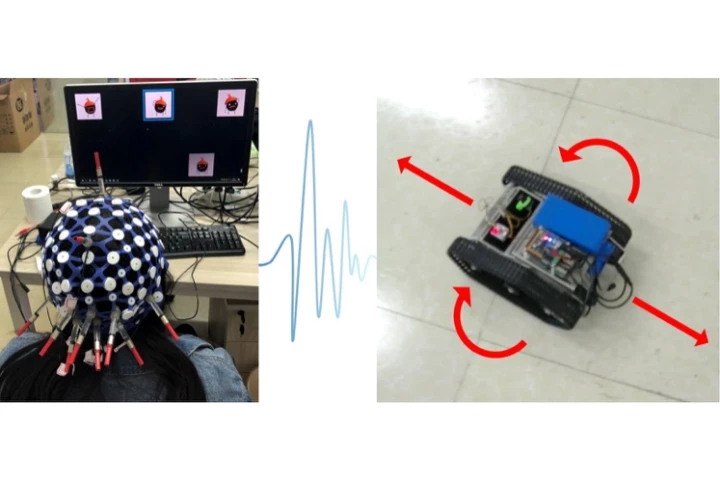Mind-reading
Technologies that seek to extract information from the brain. Thought to text systems are one example.
-
Researchers from the UT Austin have created a mind-reading AI system that accurately translates images of a person’s brain activity into a continuous stream of text, with potential applications for people who are conscious but unable to speak,
-
Mercedes-Benz takes hands-free control to the next level at IAA Mobility 2021. Its scaly Vision AVTR looks as likely to eat its driver as obey, but with a new brain-computer interface, it becomes an extension of the driver's mind and body.
-
A landmark proof-of-concept study reveals a novel brain-machine interface using ultrasound tracking brain activity to predict subsequent motor movements. The preliminary research suggests a non-invasive way of controlling computers with one's mind.
-
When it comes to accurately reading the brain's electrical signals, many systems utilize implantable electrodes. A new technology is reportedly less invasive yet just as accurate, as it swaps regular electrodes for ultra-thin wires.
-
Facebook has announced the purchase of CTRL-labs, a young company developing technology working on non-invasive systems that read your brain signals.
-
Chinese scientists have developed gel-free electrodes that read users' brain activity, even through hair.
-
A Stanford team has developed a “brain stethoscope” that translates brain waves into sound, allowing medical professionals to spot silent seizures. Another team has developed a wearable MEG helmet that means patients no longer need to lie down perfectly still inside a huge machine.
-
It's frustrating to have a clear mental image of something but not be able to exactly get it across in words or a drawing. Now neuroscientists from the University of Toronto Scarborough has developed a way to digitally recreate exactly the image someone is thinking about, by scanning their brain.
-
In the past, “mind reading” systems have been able to guess a number, but deeper thoughts have been beyond the technology’s reach. Now, a team from Carnegie Mellon University has developed a way to accurately read more complex concepts from a brain scan, and even piece together entire sentences.
-
The human brain remains an enigma, but neuroscience is beginning to unravel its secrets. To help us navigate the murky waters of peering into the human mind, researchers from Switzerland have proposed four new human rights relating to limitations on how the brain should be read or manipulated.
-
Researchers in Japan say that they've broken new ground with machines that can read out minds, developing a technology that can recognize Japanese words and also guess the single-digit number on a subject's mind with 90 percent accuracy.
-
By combining an EEG headset from Emotiv and an assistive communication app, Smartstones is bringing the power of speech to those with speech difficulties. The "think to speak" technology works by reading the brainwaves of the user and expressing them as phrases spoken through the app.
Load More











